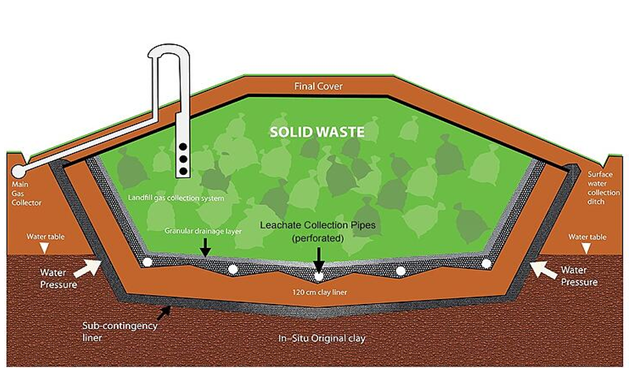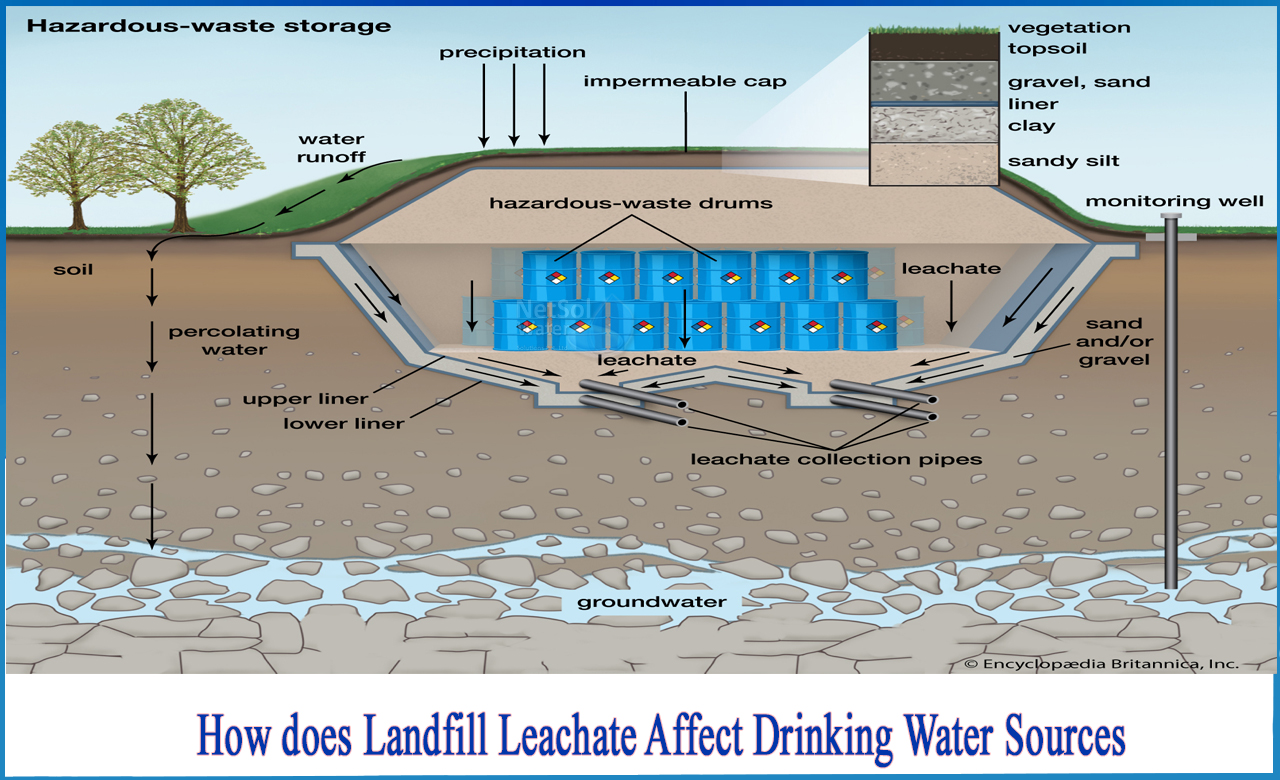Nothing is more important to our natural resources than water. Protection from contaminants, regardless of source, is beneficial to all of us. Leachate is one of the most common types of liquids that can contaminate our water supply.
WHAT EXACTLY IS LEACHATE?
Leachate is a liquid that drains from landfills. It is usually derived from rain, snow melt, or waste itself. Its composition varies greatly depending on the age of the landfill and the type of waste contained within it. It typically contains dissolved as well as suspended materials.
Landfills are the final destination for a heterogeneous mixture of liquid and solid waste from residential, industrial, and commercial sources, and as such, they have the potential to produce leachate—a liquid waste product composed of a diverse mixture of chemicals as precipitation or applied water moves through the waste.Landfills are not always the final destination for leachate that can be discharged to surface waters after onsite or offsite wastewater treatment.
How Does Leachate Affect Water Quality?
When waste is disposed of in landfills, it decomposes and sweats over time. This hazardous liquid, known as leachate, must be collected and disposed of. Landfill management companies have a specialized draining system in place to collect this leachate. Typically, the fluid is collected in tubes that transport it to special containers. The waste is then collected by hazardous waste transporters for proper disposal.
When excessive amounts of moisture flow into nearby surface waterways such as streams, rivers, and lakes, runoff contamination occurs. Contaminants from the landfill are carried by the moisture into waterways that frequently supply public water systems.
Percolation contamination occurs when a region becomes saturated with moisture from melting snow or rain. Another cause is the dumping of waste in the landfill, which may be a source of moisture that seeps into the surrounding soil. This polluted moisture percolates through the soil until it reaches underground aquifers, where clean water is stored. These aquifers provide water for private wells as well as public water supplies.Runoff and percolation introduce a variety of contaminants into our water supplies, including bacteria, organic matter, heavy metals, chemical waste, and other toxic materials.

Preventing hazardous waste contamination is far less expensive than cleaning it up. Doing it correctly the first time will save money in the long run and, more importantly, may solve the contamination problem.
Municipal solid waste landfill leachate is a highly concentrated "chemical soup," so concentrated that small amounts of leachate can pollute large amounts of groundwater, rendering it unfit for domestic use.
The following factors influence the risk of groundwater contamination from leachate that is not captured by collection systems:
· Contaminant concentration and toxicity
· The permeability of the geologic strata and the type of geologic strata
· The flow direction of groundwater
HEALTH CONSEQUENCES
Bacterial contamination can usually be eliminated by boiling or disinfecting (chlorinating) the groundwater. Other contaminants, such as heavy metals and inorganic compounds like calcium, magnesium, sodium, potassium, ammonium, iron, sulphate, and bicarbonate, are more difficult to deal with and can even react with the chlorine used in the disinfection process. This increases the public's risk and hazard.
PROTECTION STEPS THAT CAN BE TAKEN
The proper lining of landfills is critical to the safety of our groundwater. Contamination from leachate solid waste material has aided the decomposition process, increasing the rate of biological degradation, according to tests conducted in the Middle East. Allowing the waste to compost for a week before covering with soil can also help.
Lining landfills to prevent leaks is a critical step, as is ongoing monitoring. If the entire contamination process is to be successful, proper hazardous waste disposal must be used.It is in everyone's best interests to protect our water supply and the public's health.
Netsol Water is Greater Noida-based leading water & wastewater treatment plant manufacturer. We are industry's most demanding company based on client review and work quality. We are known as best commercial RO plant manufacturers, industrial RO plant manufacturer, sewage treatment plant manufacturer, Water Softener Plant Manufacturers and effluent treatment plant manufacturers. Apart from this 24x7 customer support is our USP. Call on +91-9650608473, or write us at enquiry@netsolwater.com for any support, inquiry or product-purchase related query.



